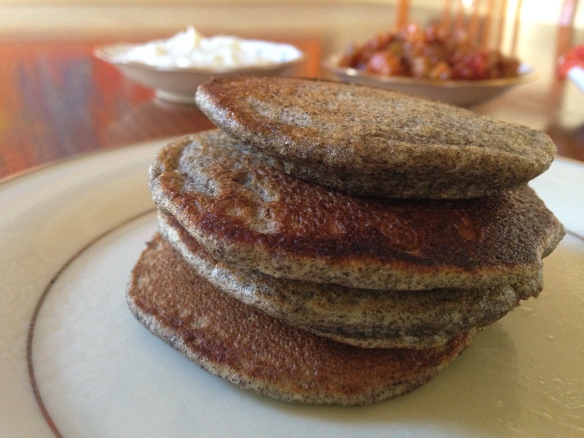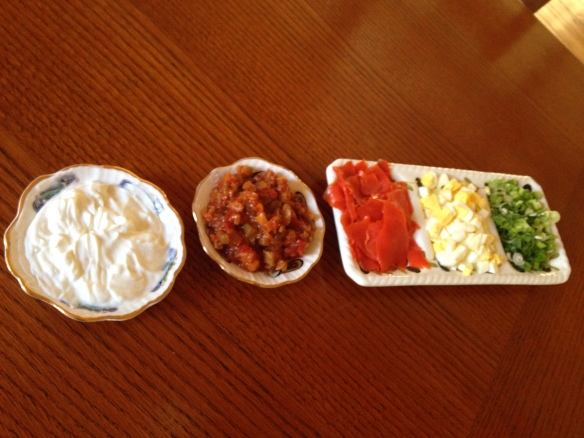Today is Forgiveness Sunday, the last day in the week-long Russian celebration known as Maslenitsa before The Great Lent begins. This is the day to forgive those who have wronged you over the year and to ask forgiveness from anyone you have wronged. A fresh start to kick off a 40-day saga of fasting and self reflection. An opportunity to try to hurt fewer people’s feelings, be more generous, less critical, less selfish… whatever your fatal flaw, today is the day to seek redemption and try again.
Russian Orthodox Lent begins on Clean Monday, instead of Ash Wednesday like Roman Catholic Lent. Both religions fast during Lent, but the Orthodox church’s asceticism really shows up the Western church’s endeavors at self-denial. While Roman Catholics abstain from meat on Ash Wednesday and Fridays in Lent, in my experience this is just an excuse to attend beer soaked fish-fries at VFW Halls. On Clean Monday the devout Russian Orthodox do not eat at all, and then only uncooked food on Tuesday and Thursday of the first week of Great Lent. They then follow that up with a strict regimen of restrictions, including no meat at all, throughout the 7 weeks leading up to Orthodox Easter.
Keeping with the great tradition of gluttony before fasting, the week before this intense abnegation is the festival of Maslenitsa, or Butter Week or Pancake Week. Dairy and Eggs are forbidden during the Great Lent. Russians use up any stockpiles of these ingredients by gorging on blini, which are yeasted pancakes made with buckwheat or white flour, butter and milk and served drenched in hot butter, sour cream and any number of additional delicacies. Blini are a sacred food in Russia, and like many Christian traditions, this festival’s origins are pagan. In Slavic Mythology, the round, golden blini symbolize the return of the sun and farewell to Winter.
This Russian version of Mardi Gras or Carnival is a seven day festival that begins on
Monday with the construction of a Maslenitsa Doll out of straw and old women’s clothing. This doll is the mascot of the week and paraded around town on a stick, like the Burning Man with fewer hallucinogens. The first blini are also made on Monday and given to the poor. Tuesday is when the festivities and pursuit of romance begin. (The Sunday after Easter is a popular day for getting married, so unattached men and women are supposed to be on the look out for a mate.) In addition to sleigh riding, parades, clowns, drinking and merriment on this day, men are permitted to kiss any passing woman they choose. This might be acceptable behavior at Burning Man, but in sounds pretty creepy in regular society. So be careful ladies! On Wednesday, sons-in-law are invited to their mother-in-law’s home to feast on blini and compliment the mother-in-law on her hospitality. Thursday is when the revelry becomes mandatory, all non-essential work in the town must stop and everyone gets in on the fun. The main attraction on this day is the official Fist Fights. Men drink large quantities of vodka and punch each other to honor Russia’s military history. On Friday, sons-in-law host their mothers-in-law for a blini feast, which more likely means that their wife does all the work, while the men nurse their hangovers, black eyes and bloody noses from Thursday’s revelry. Saturday is the Sisters-In-Law Gathering, where the youngest wife hosts her sisters-in-law to try to gain their favor and show off her hospitality.
This brings us back to today, Forgiveness Sunday. After a week of butter and vodka-infused debauchery, it is quite likely that one might have a good deal that needs forgiving.
At the end of the day the Maslentisa Doll and any leftover pancakes that you are too bloated buttered to eat are thrown into a bonfire and The Great Lent and all it’s austerity begins.
There are not many of us in modern American culture who have jobs that will enforce a mandatory work stoppage to dedicate an entire week to eating blini, sledding and fist fights so I suggest a one-day party that incorporates as many elements together as you like. For instance, you can invite all your in-laws and anyone you need to forgive and/or punch in the face all to the same party on Saturday or Sunday. If you live in a part of the country that still has snow you could host a sledding or ice skating party at a nearby park and invite everyone back to your house afterwards to warm up with fresh blini, hot tea, mulled wine and of course, vodka!







